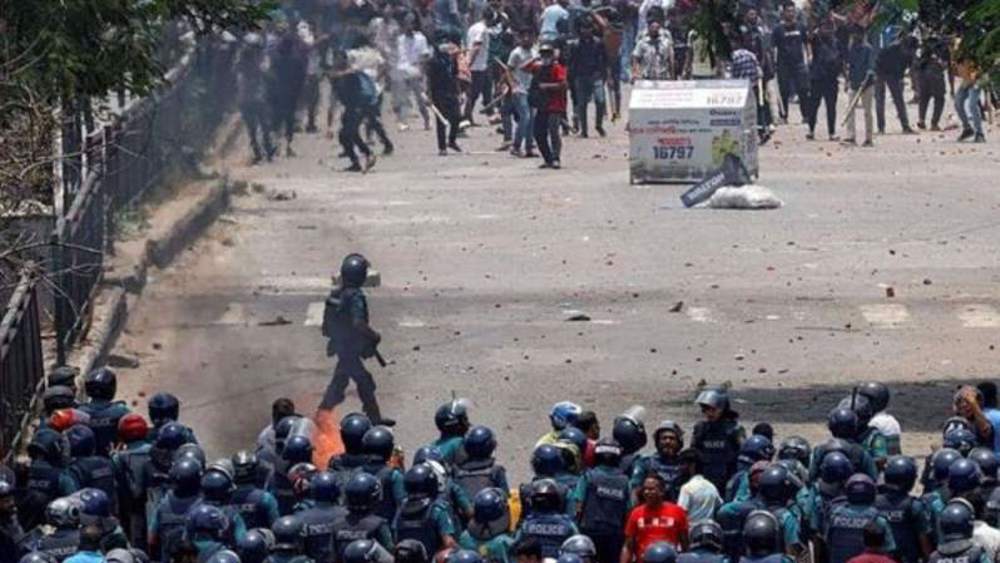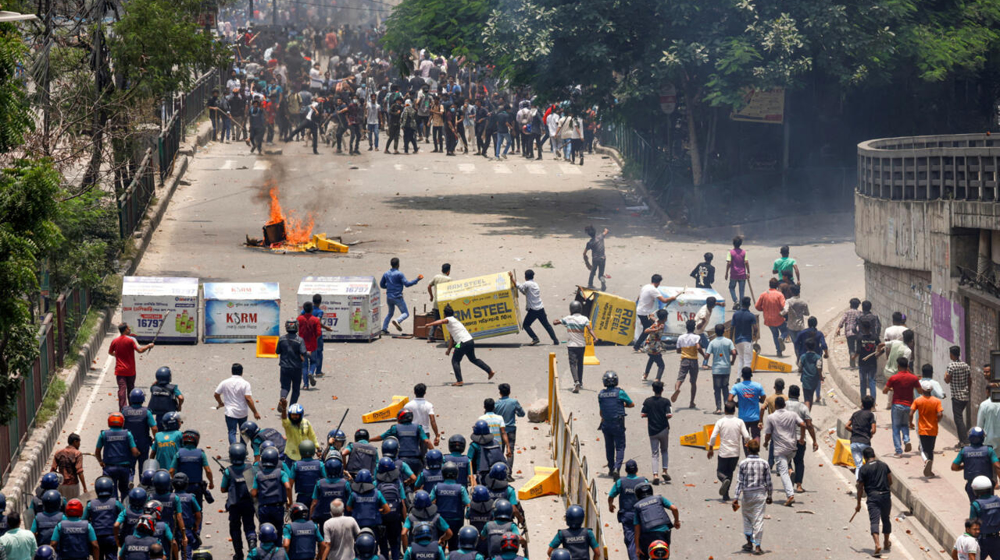Troops deployed to cities in Bangladesh to control unrest as toll rises
Soldiers have been deployed in Bangladeshi cities to quell civil disorder triggered by student protests, with riot police firing on demonstrators who disobeyed a government-imposed curfew.
At least 115 people have so far been killed in nationwide demonstrations which present a monumental challenge to Prime Minister Sheikh Hasina’s government after 15 years in office.
A curfew was enforced starting at midnight, and the prime minister’s office requested military intervention in response to widespread unrest that police were unable to contain.
According to Channel 24, the curfew is scheduled to continue until at least 10:00 a.m. (0400 GMT) on Sunday.
At dawn, the streets of capital Dhaka were nearly empty, with troops on foot and in armored vehicles patrolled the sprawling megacity of 20 million people.
Later in the day, thousands gathered again in the residential area of Rampura, where police used live ammunition on the crowd, injuring at least one person.
Demonstrations against the 56 percent quota system in public jobs escalated in the South Asian nation this week, prompting the government to close educational institutions across Bangladesh.
As per the quota system, 30 percent of the 56 percent quotas in public jobs are allocated for the sons and grandsons of individuals who took part in Bangladesh’s war of liberation against Pakistan in 1971.
Police spokesman Faruk Hossain said at least 150 police officers were admitted to hospital. The protesters, he said, torched many police booths and vandalized many government offices.
On Thursday, authorities enforced a countrywide internet blackout that continues to disrupt communication within and outside Bangladesh.
Government websites are inaccessible, and prominent newspapers such as Dhaka Tribune and Daily Star have been unable to update their social media accounts since Thursday.
Bangladesh Television, the state broadcaster, remains offline following an incident where protesters set fire to its Dhaka headquarters on the same day.
Iran’s retaliatory attacks will continue uninterruptedly: Senior commander
Saudi Arabia lobbied for UAE sanctions: Trump
IRGC launches missile, drone strikes against Israel in response to US-Israeli aggression
IRGC pounds US bases across West Asia following US, Israeli aggression
VIDEO | Plan for US-pegged digital currency in Gaza raises sovereignty fears
OIC welcomes Oman-mediated Geneva talks between Iran, US; warns against use of force
VIDEO | Campaign to boycott Israeli ‘apartheid dates’ in UK intensifies during Ramadan
VIDEO | Pakistan launches Operation Ghazab lil-Haq after Afghan border firing











 This makes it easy to access the Press TV website
This makes it easy to access the Press TV website